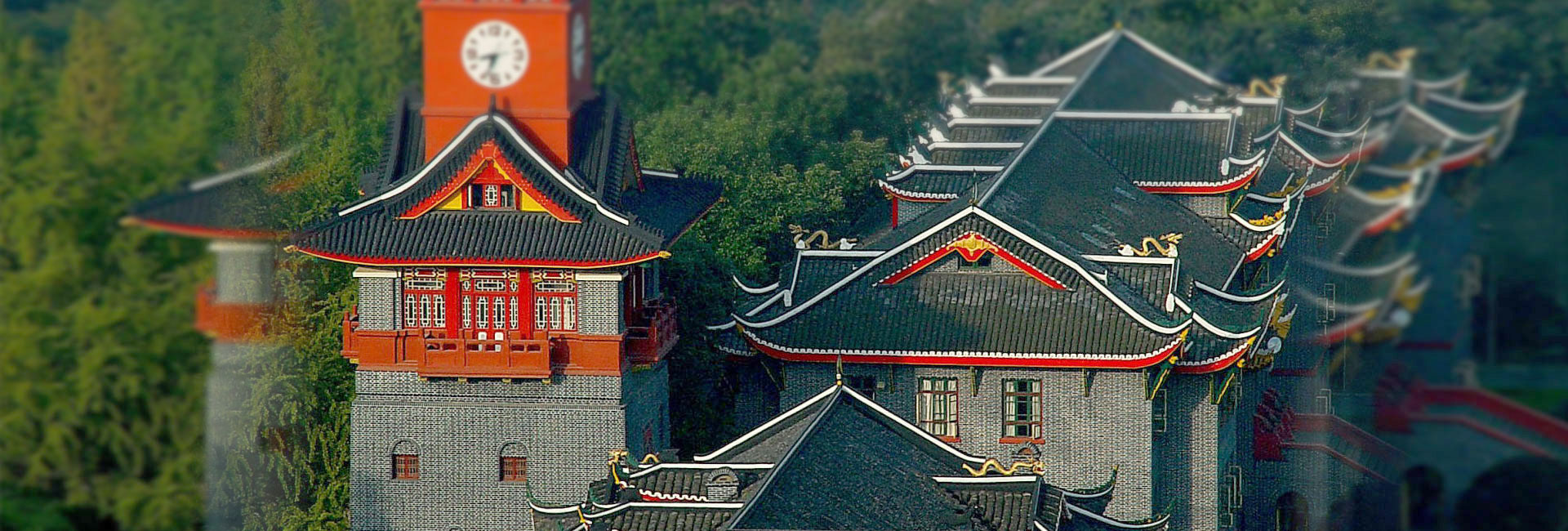The first undergraduate class of the SCU’s School of Aeronautics and Astronautics is to graduate in June this year. As of this writing, 64% of the graduating class will proceed to graduate programs either at home or abroad. Three of them have been admitted to Imperial College London, Carnegie Mellon University and New York University respectively . Besides, 36 students have been admitted to Tsinghua University, Chinese Academy of Sciences, Beihang University, Northwestern Polytechnical University, Zhejiang University, Harbin Institute of Technology, the University of Science and Technology of China, China Academy of Space Technology and other high-level universities and research institutes. Of the 36 students, several have been accepted to a graduate program leading to a doctorate.
Founded in 1945, the Aeronautical Department of Sichuan University was among the pioneers in the education and research of Aerospace Science and Technology in China. In November 2011, Sichuan University re-established its School of Aeronautics and Astronautics on the basis of previous academic strengths by integrating internal and external resources to follow the cutting-edge development of aerospace science and technology. The school took in its first undergraduate class in 2016.
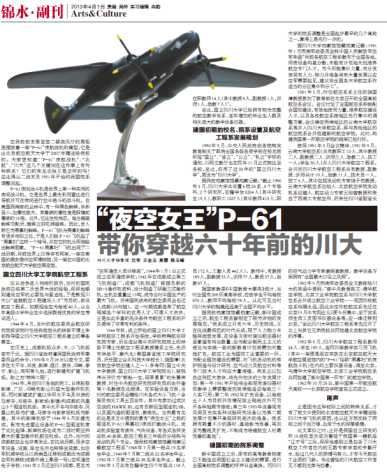
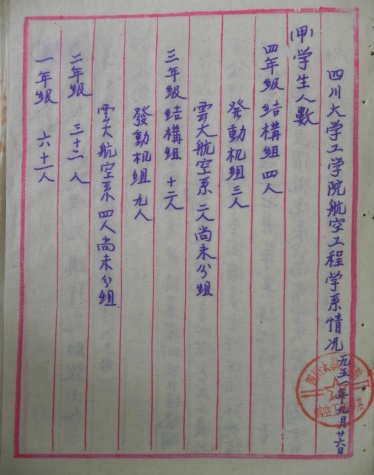
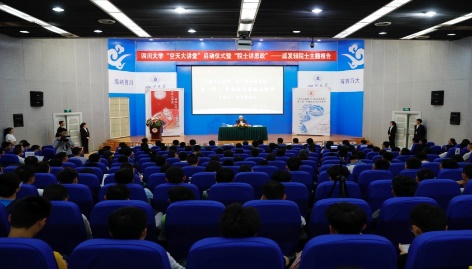
Faren Qi, academician of the Chinese Academy of Engineering, opens the "Aeronautics and Astronautics Grand Lecture"
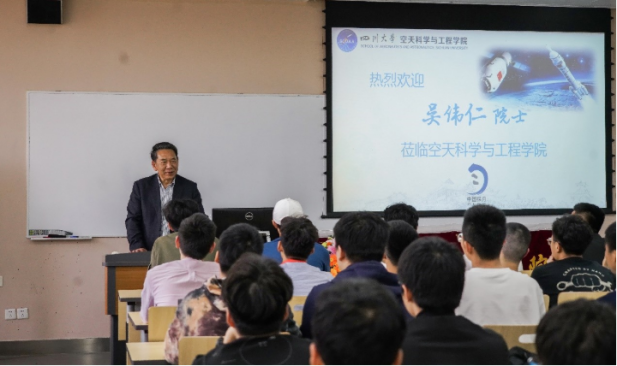
Weiren Wu, academician of the Chinese Academy of Engineering, gives a lecture to the SCU undergraduate students.
Build a high-level scientific research and practice system and nurture strong interest in students
At the beginning of this program, the college arranged for the freshmen to visit and do internship in Chengdu Aircraft Industrial (Group) Co., Ltd., China Aerodynamics Research and Development Center, the 5719 Factory, the aerospace bases, and so on. Starting from the second semester of sophomore year, the students would spend an average of over 20 class hours in the laboratory per semester.

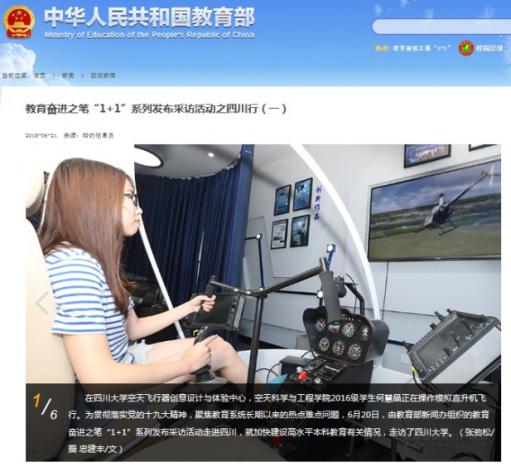
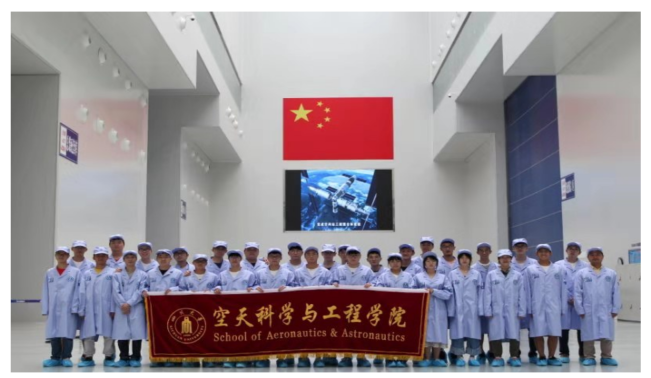
During the practicum in August last year, students of two majors went to practice at ChinaGas Turbine Establishment (GTE);Beijing Satellite Environmental Engineering Research Institute; Technology and Engineering Center for Space Utilization, Chinese Academy of Sciences;WisesoftCo., Ltd. and the 5701 Factory. As a result, four students of the graduating class have been accepted to one of the above-mentioned institutes for further studies.

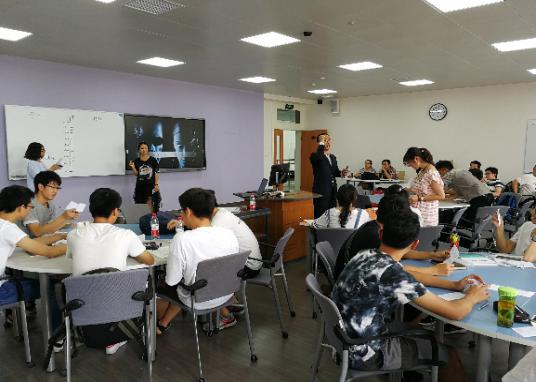
Customized guidance, and one-on-one help for individual students to prepare for graduate school entrance examinations
The college has set up a six-level personalized guidance system consisting of honorary head teachers, subject course head teachers, academic advisors, ideological and political counselors, student supervisors and off campus counselors to fully implement the notion of an all-around education involving all stall on all fronts. Zhicheng Zhou, the college dean and academician of the Chinese Academy of Engineering, and other college leaders attach great importance to the promotion work of graduates' further education. Moreover, the department heads, the head teachers and the counselors have a deep understanding of the situation and intentions of individual students who will take the entrance exams for graduate school. And they have made a plan for each candidate.

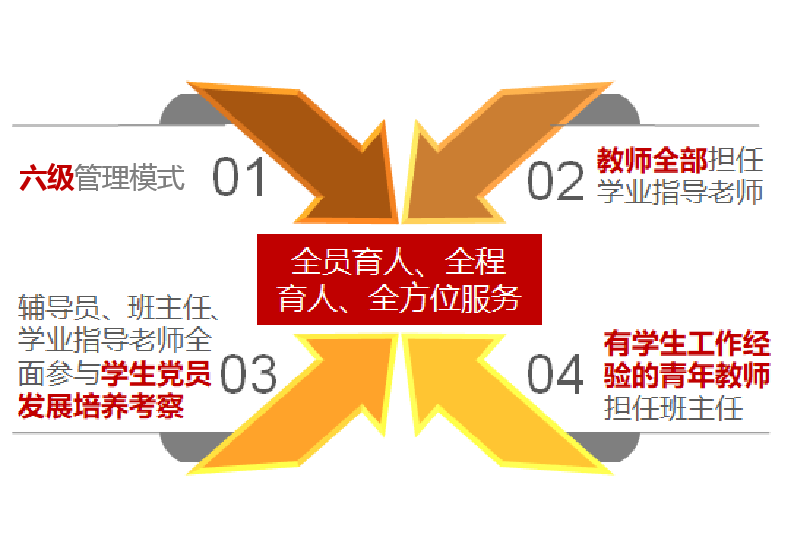
As a result, 75% of the candidates have passed the preliminary national examinations for graduate school.


“Mr. Zhou, I have been admitted to Harbin Engineering University!” At 9:42 p.m. on May 24, Mr. Guangwu Zhou, the head teacher for Class 2020 of the Aerospace Engineering, received the good news from his student Songwei Chen.
As a typical interdisciplinary training base for undergraduate students, the College of Aeronautics and Astronautics has been striving to develop and perfect a new engineering training system to meet the requirements of the new era, so as to promote high-level talent training with high-quality further study.
